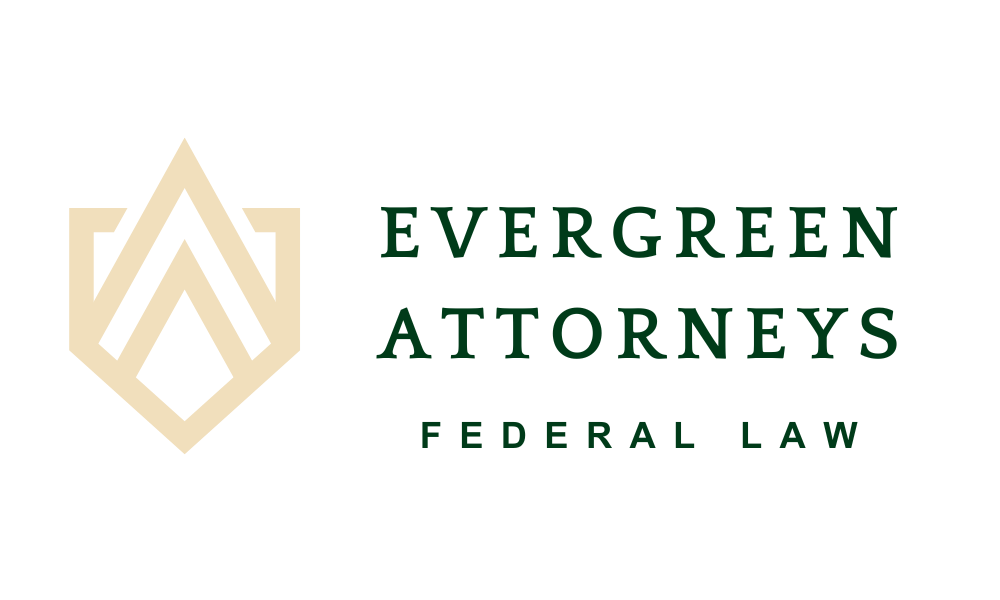Share
Share

Colorado Healthcare Fraud Defense Attorneys
Healthcare fraud charges can be filed against good doctors; good nurses; good care giving professionals. Evergreen Attorneys know that these charges put everything on the line: your finances, your license, and your freedom. Our Colorado healthcare fraud defense team is here to help you when federal investigators come knocking at your door.
What makes the federal healthcare fraud defense team at Evergreen Attorneys different? Here are a few things from the start:
- We focus exclusively on federal criminal defense. No family lawyers or personal injury clients to be found in our offices.
- Our clients only work with partner-level attorneys. There are no fresh-faced associates in our law firm. Only the best.
- We are a boutique white collar law firm. Every decision is designed to provide exception criminal defense. No unnecessary bloat.
Most of our clients never imagined they’d be accused of healthcare fraud. They’re doctors and therapists, or people trying to run businesses, not commit a crime. Sometimes, they’re even patients, simply trying to receive proper care. But a billing dispute, documentation gap, or an aggressive whistleblower can suddenly put everything at risk.
What is the Evergreen Attorneys Difference?
With the Department of Justice cracking down on healthcare fraud in 2025, we have seen an increased number of Coloradans in need of a trusted defense attorney who can guide them through overwhelming accusations with clarity and compassion.
At Evergreen Attorneys, we have a deep understanding of how things really work here in Colorado, and our team of Colorado healthcare fraud defense attorneys are ready to guide you through any subpoenas, audits, or federal agents at your door amidst healthcare fraud accusations you may be facing.
What’s at Stake in a Federal Healthcare Fraud Case?
There is a growing scrutiny of healthcare billing, and federal enforcement trends reflect an increase in prosecution of healthcare fraud. These federal sweeps affect medical providers nationwide, and Colorado is no outlier. In fact, the Colorado Attorney General’s Office has its own special agency (Medicaid Fraud Control Unit) to investigate and prosecute medicaid fraud at the state-level.
That means that if you’re being investigated in Colorado, you’re likely facing a coordinated effort between state and federal authorities, bearing serious consequences. These may include criminal charges, prison time, heavy fines, loss of medical license, and more.
What is Federal Healthcare Fraud?
Healthcare fraud involves intentionally deceiving the healthcare system to receive unauthorized benefits or payments. Healthcare fraud can be committed by entities or individuals, including medical providers, companies, or patients. Some common forms of healthcare fraud are:
- Billing for services that were never provided, “phantom billing”
- Billing multiple claims for one service, “double billing”
- Billing for a more expensive service than what occurred, “up-coding”
- Using another person’s insurance for healthcare service
- Enrolling a patient in a fake benefit plan
- Impersonating a healthcare professional
- Forgery
- Selling prescription medication to an unauthorized person
- Visiting multiple providers to receive controlled substances for illicit use
These offenses can be prosecuted under both federal and state laws. At the federal level, the key statute is 18 U.S.C. § 1347. Federal agents can also bring charges under the False Claims Act (FCA), the Anti-Kickback Statute, and the Stark Law. At the state level, Colorado can investigate cases with the FBI or Colorado State Patrol along with other consumer protection agencies like the Medicaid Fraud Control Unit, the Colorado Department of Regulatory Agencies (DORA), or the Colorado Department of Health Care Policy Financing (HCPF).
Prosecutors don’t always need smoking-gun evidence. Many cases are built on billing trends or mistakes made by staff, which is why it is essential to receive help from a meticulous Colorado healthcare fraud defense attorney.
What to Do If You’re Under Federal Healthcare Fraud Investigation?
If you’re facing a healthcare fraud audit or investigation, your first instinct might be to explain yourself and comply. Don’t. Despite the professional inclination toward transparency, engagement without legal counsel presents substantial risk. We tailor our approach to each client’s unique situation but there are a few key things everyone should keep in mind during an investigation:
- Speak with a Colorado healthcare fraud defense attorney quickly. Early intervention is critical in healthcare fraud cases.
- Exercise your Fifth Amendment rights, speaking only to request legal representation. Do not talk to the federal investigators who show up at your office with a smile and just say they want to “ask a few questions.”
- Retain counsel with specific healthcare fraud defense experience and federal court capabilities.
- Create contemporaneous documentation of all investigative interactions.
- Implement information control protocols, restricting case discussions to privileged attorney communications.
Taking proactive steps can protect you from limiting your options in a Colorado healthcare fraud defense case. While many people facing these charges are seasoned professionals within the medical community, even the most careful client shouldn’t navigate a healthcare fraud investigation alone. These cases are complex, and an experienced attorney can make all the difference.
What Your Healthcare Fraud Lawyer Will Do
Healthcare fraud cases are complex and often involve years of data, documentation records, and multiple government agencies. A skilled Colorado healthcare fraud defense attorney will:
- Dig into the details of the allegations and figure out what exactly set the investigation in motion.
- Push back on weak claims from prosecutors, filing any motions that may help your case.
- Bring in trusted billing and compliance experts to help explain how your practice actually works.
- Build a case that tells your full story, ensuring that no misunderstandings are present for the prosecution or law enforcement officers.
Your lawyer’s role is not simply to defend you in court, but rather, to protect your career, your business, and your reputation.
Healthcare Fraud Statute of Limitations
Generally speaking, there are time limits on when the government can file charges based on specific acts. This time limitation is referred to as a statute of limitations. Meaning, if the government does not start or initiate a case before a period of time ends (say 10 years after an event) then those charges might be dismissed.
For non-capital crimes, including federal healthcare fraud prosecutions, the statute of limitations is found codified at 18 U.S.C. Section 3282. The statute of limitations in federal healthcare fraud cases is five years.
However, it is not always as simple as identifying a specific date in time (i.e., December 13, 2017). That is because the federal government will often try to extend the statute of limitations for healthcare fraud prosecutions by using doctrines such as “continuing crimes” or “ongoing offenses” which artificially allow the limitations period to go beyond five years:
The continuing-violation doctrine “tethers conduct from both inside and outside the limitations period into one single violation that, taken as a whole, satisfies the applicable statute of limitations.” Hamer v. City of Trinidad, 924 F.3d 1093, 1100 (10th Cir. 2019)
This is a tactic that your attorney needs to be prepared to fight aggressively. Does your federal healthcare fraud lawyer know how to raise statute of limitations arguments under Federal Rule of Criminal Procedure 12? Have you discussed with your attorney that there is usually a very short window to file motions to dismiss under F.R.C.P. 12 in most federal criminal cases?
If not, contact Evergreen Attorneys today and we can discuss your options to build a plan to defend against your statute of limitation issues in healthcare fraud cases.
Deliberate Ignorance and Colorado Healthcare Fraud Defense
Do you have to actually know about improper acts (i.e., ghost patients, improper patient recruiting, kickbacks, upbilling, etc.) to be convicted of “knowingly” committing healthcare fraud? The short answer, according to prosecutors, is “no” and they like it that way.
Federal healthcare fraud prosecutors almost always seek to have juries instructed on the theory of so-called deliberate ignorance at trial. Deliberate ignorance is, simply put, the ostrich theory: a defendant saw or heard things that aroused suspicion, but instead of looking further, the defendant put their head in the sand. This is how the Eleventh Circuit described deliberate ignorance in a 2019 case:
“We “consistently” have recognized “deliberate ignorance of criminal activity as the equivalent of knowledge.” United States v. Arias, 984 F.2d 1139, 1143 (11th Cir. 1993) (quotation omitted). Deliberate ignorance occurs when “a party has his suspicion aroused but then deliberately omits to make further enquiries, because he wishes to remain in ignorance . . . .” United States v. Rivera, 944 F.2d 1563, 1570 (11th Cir. 1991) (quotations omitted). A deliberate ignorance instruction is appropriate where the facts “support the inference that the defendant was aware of a high probability of the existence of the fact in question and purposely contrived to avoid learning all of the facts in order to [*180] have a defense in the event of a subsequent prosecution.” Id. at 1571 (quotation omitted). …”
United States v. Pineda, 843 F. App’x 174, 179-80 (11th Cir. 2021).
When can you expect this jury instruction? Did you have a office billing manager who was submitting false or improper Medicaid billing? Did that office manager cut a deal with the federal prosecutors to testify against you? Are they going to claim that you knew about what was going on the whole time or that you signed off on every bill submitted?
Deliberate ignorance is the elephant in the room in every healthcare fraud case that will go to trial. You need an experienced federal healthcare fraud attorney who can counter a claim of deliberate ignorance from the first consultation. You need to be putting together evidence demonstrating that you were a good faith medical provider and not simply an “ostrich in the sand” who could end up in federal prison.
What do our former clients say about Evergreen Attorneys?
Protect What You’ve Built- Call for a Confidential Healthcare Fraud Consultation
Healthcare fraud allegations are high-stakes, often completely unexpected. If you’re being investigated in Colorado or in federal court, don’t wait to see how things unfold. Talk with a Colorado healthcare fraud defense attorney who will guide you with strategic confidence.
The earlier you bring in experienced counsel, the better your chances are of resolving the case. Contact Evergreen Attorneys today for a confidential consultation at (303) 948-1489 or get in touch by email: [email protected].
Zachary Newland
Zachary Newland is an attorney, author, aspiring BBQ connoisseur, and mediocre skier. Zachary's law practice is focused on federal criminal defense, federal appellate advocacy including post-conviction remedies, civil rights litigation, and complex trial work. Zach lives in Evergreen, Colorado with his family. You can reach Zach at [email protected] to discuss your case or call him directly at 303-948-1489.
STAY IN THE LOOP










